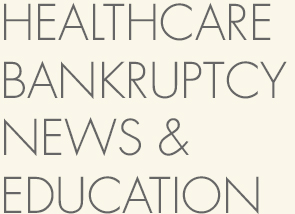Filing for Bankruptcy Has Many Advantages
One of the least understood areas of finance is bankruptcy and the ramifications that it has for individuals. While personal bankruptcy is something that no one would want to face, studies show that filing for bankruptcy is often better than not filing. In many cases, avoiding bankruptcy will only cause more financial headaches in the long run.
The myth that people filing for bankruptcy are trying to milk the system and acting in an irresponsible manner is not accurate. Personal bankruptcy shouldn’t be avoided if it will help to get you back on your feet in a responsible way.
A Closer Look at the Statistics
In 2005, many new bankruptcy laws were implemented as part of a new bankruptcy reform. The Federal Reserve Bank of New York released a report on these laws which revealed statistics that illustrated very different trends in people who filed for bankruptcy protection versus those who opted against filing for bankruptcy. The FRBNY reported that people who had in fact filed for bankruptcy protection were more easily able to obtain credit from lenders than those who had continued to struggle financially.
“For each quarter, we present the average number of new unsecured accounts four quarters later for individuals who become insolvent in that quarter but will not go bankrupt, compared to individuals who go bankrupt in that quarter,” reads the FRBNY’s report.
“Clearly, individuals who do go bankrupt open a larger number of new unsecured accounts. Since the number of inquiries is very similar across the two groups, this outcome is not driven by difference in demand for new accounts, but rather by difference in access to credit.”
Regaining Credit Occurs Faster Than People Think
Many discover that applying for a credit card after personal bankruptcy is easier than they think. Very often, soon after a bankruptcy filing, people receive several offers extending credit to them. Within 18 months, many receive good rates on car financing, and some are even able to get approved for a mortgage within 3 years or less.
The FRBNY report also indicated that people who had filed for bankruptcy protection had their credit scores improve with higher frequency than those who opted to refrain from bankruptcy.
Additionally, other aspects pertaining to one’s overall long term finances could be hindered more so by avoiding bankruptcy protection. One example is a person’s retirement income. The more money one has to spend to repay debt in full with high interest rates means that they’ll likely have less money with which to spend when they decide to stop working.
The conclusion of the FRBNY’s report was that people should think seriously before avoiding bankruptcy. “Insolvent individuals who do not go bankrupt exhibit more financial stress than those who do.”



